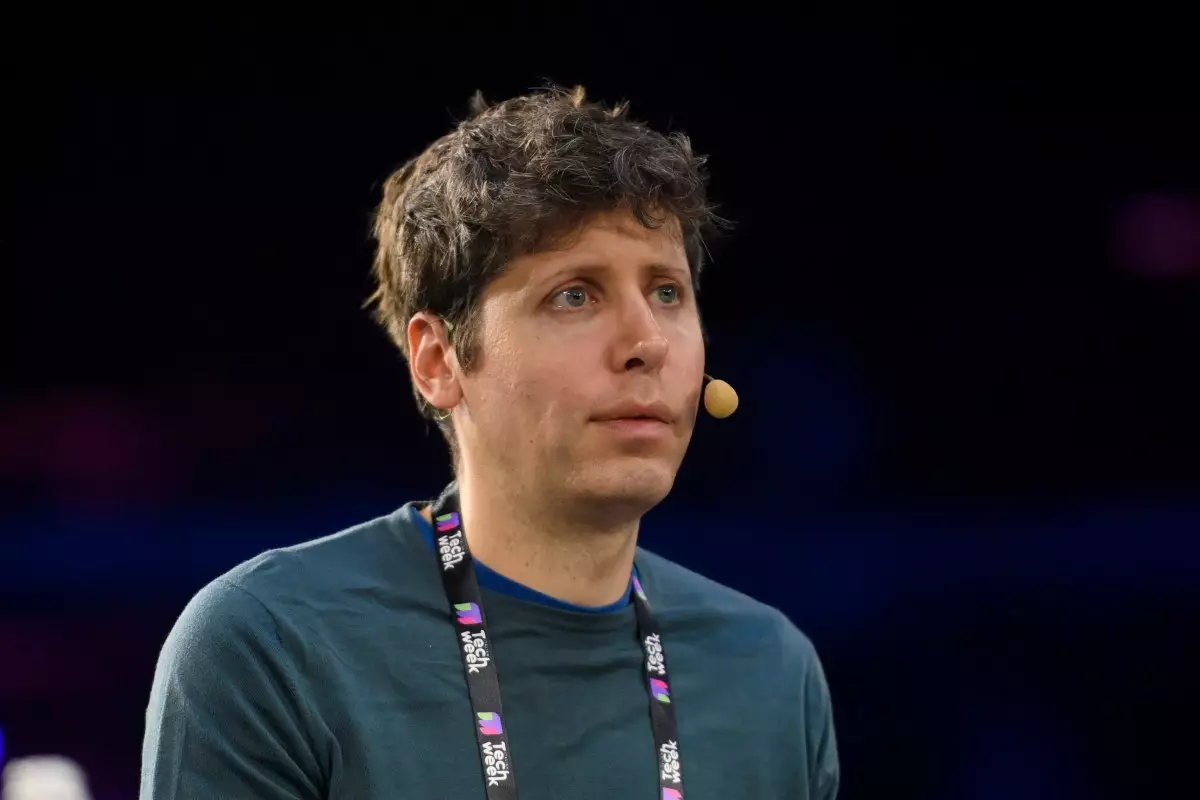In a strategic shift that marks a significant pivot for the Sam Altman co-founded startup, Worldcoin has dropped the “coin” from its identity, now simply called “World.” This decision reflects a desire to redefine the company’s position within the crypto and technology landscape, as well as to broaden its mission beyond its original cryptocurrency focus. The change, announced during a vibrant live event in San Francisco, coincided with the reveal of their latest iris-scanning device, the Orb, and hints at an ambitious roadmap for the future.
The Evolution of Identity Verification
World’s decision to rebrand signals a broader strategy to enhance its core offering. Co-founder and CEO Alex Blania elaborated on this shift, noting that the previous name “just doesn’t work anymore.” This suggests a change in the company’s vision, aiming to establish itself as a leader in human verification services, rather than just as a cryptocurrency venture. With an eye on the exponential growth of artificial intelligence (AI) and its implications, World is positioning itself against the backdrop of an increasingly digital society where distinguishing between human and artificial interactions is becoming increasingly complex.
This recognition of the challenges posed by advanced AI—where discerning human interaction becomes less obvious—is foundational to World’s mission. The company seeks to create infrastructure that allows for reliable human verification through innovative uses of blockchain technology, which may provide a safety net as AI continues to evolve.
The presence of industry heavyweight Sam Altman, CEO of OpenAI, contributes an intriguing layer to World’s narrative. While he maintains a significant role within World, Blania emphasizes that the two entities operate independently. This delineation raises questions about how intertwined their fates might be, especially as AI technologies grow more complex and pervasive. Altman’s close involvement suggests that his insights contribute to World’s direction, yet the co-founders assert that their missions diverge significantly.
However, the potential for integration between World’s services and OpenAI technologies—like GPT—remains open for discussion. Blania hinted at future possibilities of World’s cryptocurrency being merged into AI platforms, though the specifics of such collaboration remain speculative. This assertion of independence is crucial in understanding World’s ambition to carve out its own path in the complex tech ecosystem.
Despite its innovative ambitions, World does not escape scrutiny. Governments in various regions, including Kenya and parts of the EU, have previously investigated World over privacy and regulatory concerns. The ongoing probes illustrate the challenges that arise when a company attempts to blend advanced technology with personal data verification in a landscape where consumer trust is fragile. Public perception of crypto-based services remains skeptical, and concerns over identity privacy can hinder widespread adoption.
While World maintains a groundbreaking approach to identity verification, it also walks a precarious tightrope. Trusting a cryptocurrency company with sensitive personal information is a daunting proposition for many consumers, particularly in light of accusations against its founders—such as claims of deception within OpenAI’s leadership.
Scaling Up: Roadmap to Growth
World’s newly unveiled four-step roadmap aims to enhance its outreach and the scale of its operations. The first two phases—developing the next-generation Orb and establishing a distributed ownership network via blockchain—are reportedly complete. The third phase focuses on scaling the user base from 7 million verified individuals to potentially much larger numbers.
The freshly launched Orb is a cornerstone of this scaling effort. Designed for rapid and efficient production, the new device boasts enhanced speed and fewer components, facilitating greater accessibility. The company aims to make the verification process seamless, with plans for partnerships that allow individuals to undergo verification at local coffee shops or via delivery services like Rappi.
On the technological front, World introduced Deep Face, an initiative aimed at combatting the growing threat of deepfakes and online impersonation. This new service is intended to augment popular video communication platforms, but details on implementation remain murky.
The Challenge of Trust and Adoption
A significant hurdle lies in fostering public trust and encouraging adoption of World’s verification services. During the launch event, guests were asked to present government-issued IDs to verify their identities, highlighting the inherent skepticism towards trusting a cryptocurrency entity with personal data. This skepticism is amplified by the controversy surrounding leadership figures like Altman.
While World’s rebranding and innovative approach may carve out new pathways in the identity verification landscape, its success depends heavily on navigating ethical scrutiny and building consumer trust in an increasingly skeptical market. The merging of advanced technologies, blockchain, and a focus on human verification could potentially redefine personal identification in digital spaces, yet its implementation and public reception remain to be seen.

